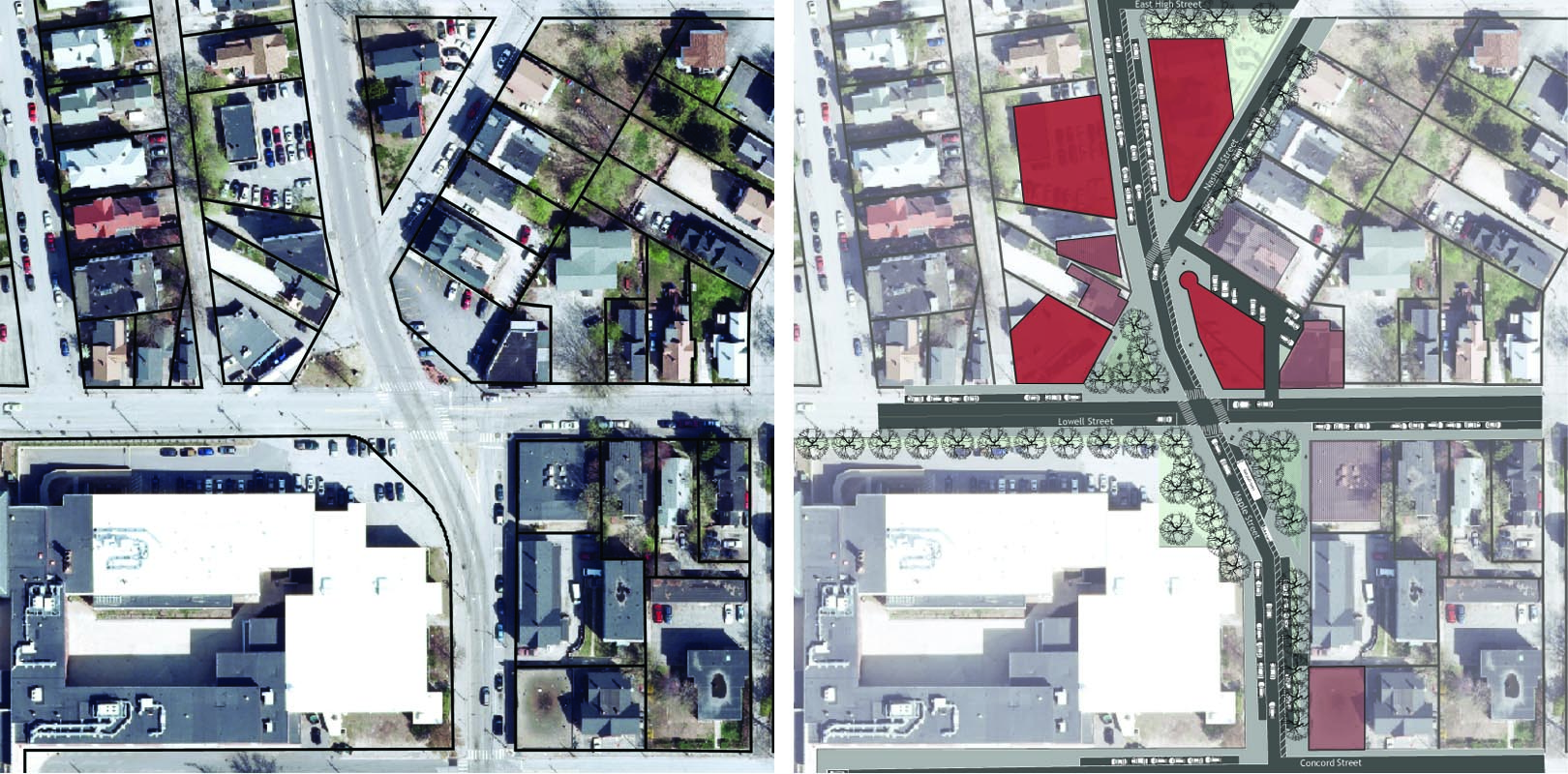FrankLloydMike
Active Member
- Joined
- Jun 24, 2010
- Messages
- 514
- Reaction score
- 0
There's a nice write-up on the Main Streets program in New Hampshire in today's Union Leader. I'd like to see to see a similar approach taken with some of Manchester's neighborhood centers, including Webster Street, the Hollow, Rimmon Heights and Granite Square, which could all benefit from some unified vision and strategy.
Main Street program breathing new life in downtowns across state
By Nancy Bean Foster
Keeping downtown areas vibrant and making them attractive centers of commerce and community are the goals behind Main Street programs. Towns across the state will celebrate their success on Tuesday, Main Street Day.
The Main Street program, administered by the National Trust, began in New Hampshire in 1997 with the communities of Littleton and Milford, which had already begun efforts to revitalize their downtowns. The program has spread to Concord, Dover, Goffstown, Jaffrey, Lisbon, Meredith, Ossipee, Rochester and Wilton.
In Milford, according to Tracy Bardsley, director of the town's Main Street program, the downtown area was falling victim to neglect. The town hall had been condemned by the fire marshal, shops were shuttered, and businesses had simply vanished.
In 1992, a group of citizens decided that the Milford Oval was too precious to lose and concerted efforts began to breathe new life into downtown. The Milford Downtown Ongoing Improvement Team (DO-IT) was formed. In 1998, it was recognized by the National Trust as a New Hampshire Main Street Community by establishing a board of directors and committees to carry out plans, and by raising funds to support the program, among other requirements.

Once on the verge of being condemned, the Milford Town Hall is a centerpiece of a downtown that has seen marked improvement because of the Main Street program.
Four-point plan
The town agreed to adopt the National Trust's four-point plan to restore the downtown area. That included economic restructuring, organization, design and promotion.
"The idea behind making the downtown as attractive as possible is really simple -- people and businesses want to be in a location that is attractive, safe, pedestrian-friendly," said Bardsley. "It spurs economic development because commercial and industrial interests want to locate in that environment, real estate values increase or maintain their appreciation, and the town becomes a destination for visitors for unique retail shops and dining."
Goffstown, Wilton sign on
In Main Street towns, the organization works with businesses and municipal governments to restore buildings, signs and lighting, design and seek funding for sidewalks and underground utilities, bridge repairs, parks and other aesthetic improvements.
The money to run the organization comes from both municipal governments and donations from businesses, organizations and individuals, said Robbie Grady, director of the Goffstown Main Street Association. Grants are sought to make improvements, both large and small, in the communities.
Grady said the program took off in Goffstown when the local Rotary Club built a pocket park overlooking the river and inspired others on Main Street to start sprucing up their properties.
"Something needed to be done for the betterment of town," said Grady. "We have the ability to bring groups of people together to work on projects that highlight the community and to show people that this is a good place to be and to live."
In Wilton, where Bardsley got her start as a Main Street director, the Main Street program received a grant to install new sidewalks downtown and purchased the land that is now the new downtown park. The Wilton Main Street Association also paid for the awnings on several downtown buildings.
Grady said there's been more than $2.5 million in public and private investment in Goffstown's Village area since the program began. In Milford, the number is closer to $6.6 million.
Bardsley said in 2010, Milford's Main Street program events helped bring in almost $2.7 million in revenues.

New sidewalks and a park are part of the improvements in downtown Wilton due to the Main Street program.
Still struggling
But while some businesses are flourishing thanks to the help of their Main Street programs; others are struggling.
In Wilton, for instance, the new sidewalks and pocket park haven't resulted in a flood of new customers, said Marie Fortier, owner of the Here Today Emporium.
"We're still struggling to get people to come in," she said. "I was so gung ho when the Main Street program started, but now I'm not sure it really works."
The Route 101 bypass has led to a quiet Main Street and struggling businesses, Fortier said.
But Richard Putnam, Fortier's neighbor on Main Street, said the concept of the Main Street program is great. What's lacking, he said, is volunteers to make the program work.
In Goffstown, Steve Pascucci owner of the Village Trestle restaurant and bar, echoed Putnam's sentiments.
"The businesses aren't working together," said Pascucci. "There's not a whole lot of participation. We need to come together as a Main Street unit."
On Tuesday, the towns that participate in the Main Street program will share their methodology for community revitalization during a daylong conference, evening showcase and reception at the Red River Theatre in Concord.


